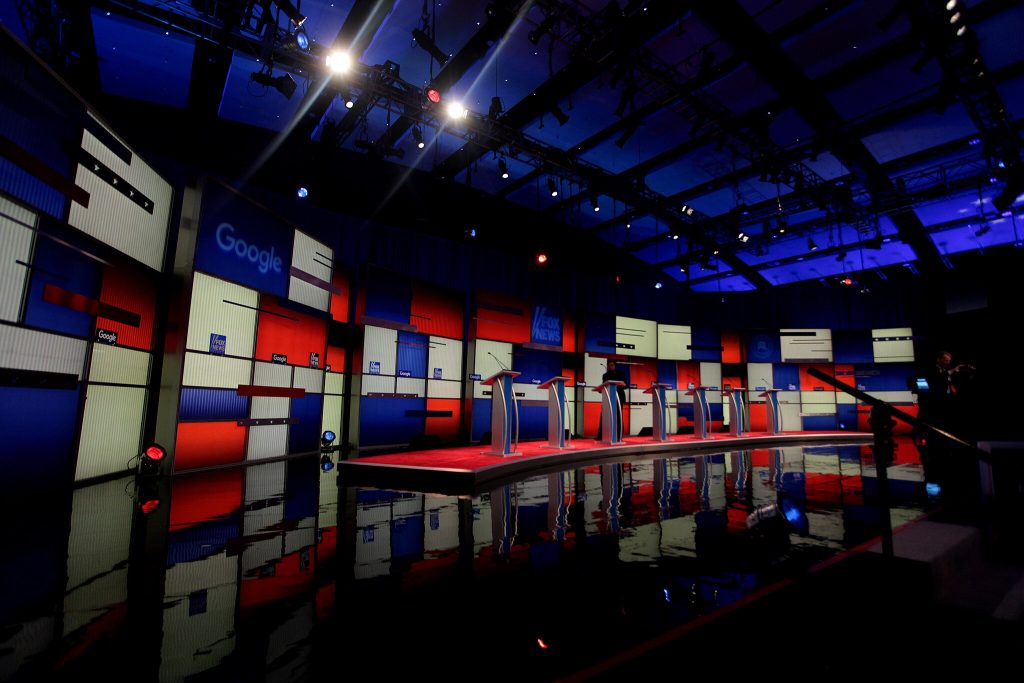
Modern debates have become a circus of candidates attempting to “own” the person they are trying to have a policy discussion with. This is not just an issue with presidential debates. Many debates taking place between governors, senators and members of the House of Representatives now have large audiences that cheer for their favorite candidate. The issue with this format is that much of the viewers’ attention moves away from policy and becomes hyper focused on “got ‘em” moments where the candidates try to make each other look foolish.
One perfect example of this is the debate between Hillary Clinton and Donald Trump in 2016. Hillary Clinton had stated that it was a good thing someone with the temperament of Donald Trump was not in charge of the law in our country. Trump’s response was, “Because you’d be in jail,” which was received very well by the crowd that began to loudly cheer for him. The comeback line was witty, but it did not in any way reflect a policy position that would impact the lives of Americans. Arguably, Clinton’s remarks were not much better.
Attacking the temperament of a politician is an easy way to avoid talking about policy issues which at the end of the day are the only thing that matter to the lives of voters. Politicians can be mean, angry, vindictive and miserable. Their temperament does not necessarily reflect the policy positions they will support. What has made debates so great in the past is that they have focused on issues that directly impact voters.
The first televised debate to ever take place between two presidential candidates was the 1960 debate between Richard Nixon and John F. Kennedy. The debate was televised during a time when there was significantly less competition among networks for the attention of viewers. The first televised debate was a huge deal. A lot of people tuned in because they wanted to hear what these two candidates had to say. People wanted to know how the policy choices of these two candidates would impact their life, and policy was what they discussed. The debates were dignified, and at no point during the debate did a noisy audience interrupt candidates or loudly cheer, because there was no one in the audience. The only people invited to the debate were journalists.
This debate was policy-focused and influenced the voting decisions of millions of voters. Today, the parties are allowed to invite whoever they like to the debates. Oftentimes this means campaign workers go to the debate, and they have every incentive to boo, cheer and clap when they think it will benefit their candidate. Debate questions are also shorter than they were in the past. Deep discussions have been replaced by short answers, which is likely the result of our desire for rapid fire entertainment. This rapid back-and-forth format will unfortunately not be going anywhere.
Last month’s Republican presidential primary debate was no different than other modern debates. It began with canned speeches that were clearly practiced in front of a mirror with the goal of getting applause. There were several great one line zingers throughout the debate that the audience ate up. I’m sure the GOP was very happy with the resulting TikTok clips and meme material that came from the debate. At many points during the debate the candidates talked over each other so much it was impossible to hear what they were saying. For Americans who are genuinely struggling, the debate was useless. The entire night was just a slap fight between people who barely made it onto the debate stage in the first place and have no real chance of becoming the Republican nominee.
Trump’s presence was felt at the debate, and for good reason. The former president leads the field by over 50 points in some polls! Perhaps ironically, Donald Trump’s famous debate line, “because you’d be in jail,” will reflect the very thing that will be happening to him once he is convicted of several crimes in courts across the country. The self-reflection that will hopefully follow the Trump era may inspire future candidates in both parties to push for debates without audiences, and subsequently a higher focus on policies that actually matter to Americans instead of witty one liners. The honor and dignity of this country may depend on it.


